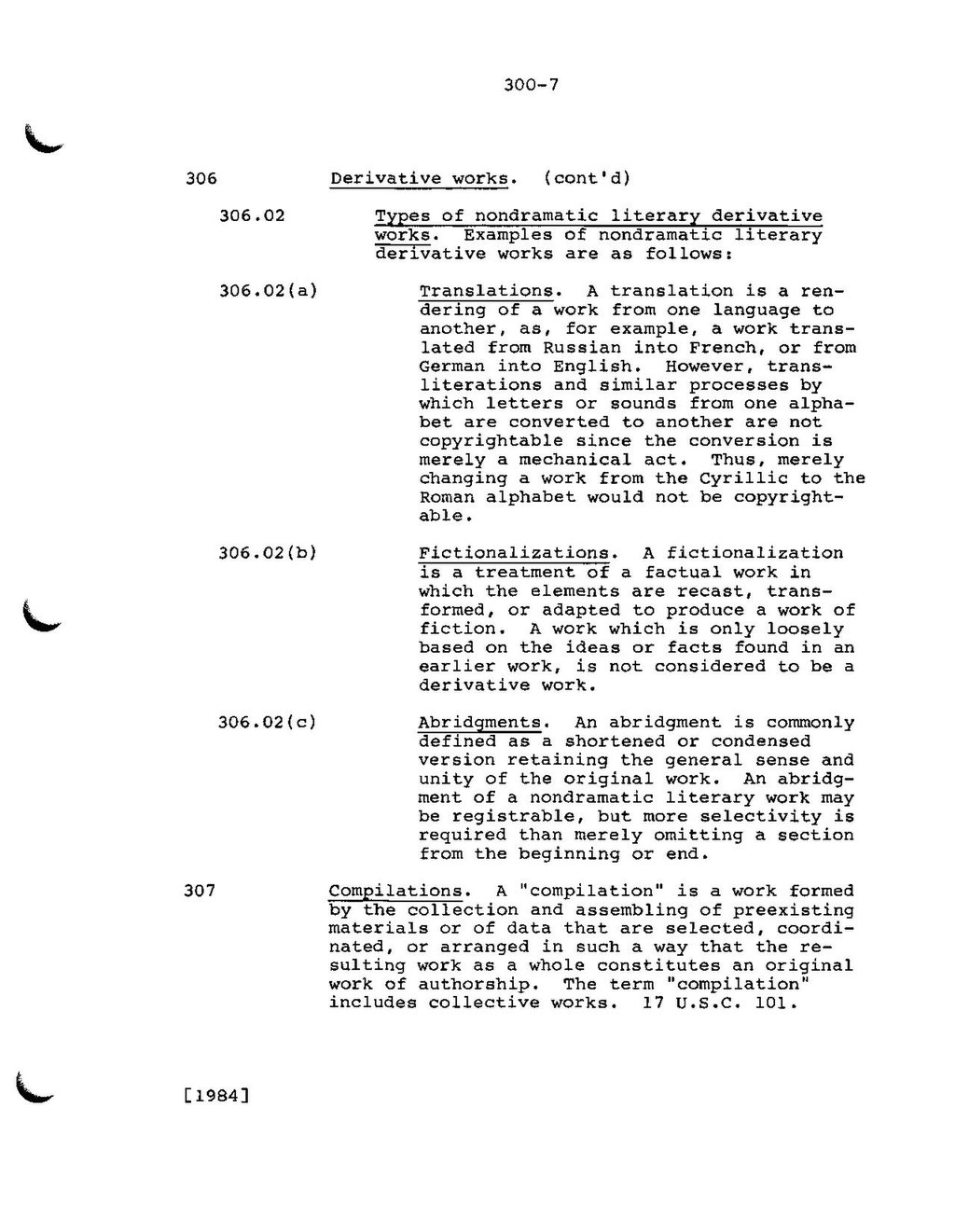300-7
306
Derivative works. (cont'd)
306.02
Types of nondramatic literary derivative works. Examples of nondramatic literary derivative works are as follows:
306.02(a)
Translations. A translation is a rendering of a work from one language to another, as, for example, a work translated from Russian into French, or from German into English. However, transliterations and similar processes by which letters or sounds from one alphabet are converted to another are not copyrightable since the conversion is merely a mechanical act. Thus, merely changing a work from the Cyrillic to the Roman alphabet would not be copyrightable.
306.02(b)
Fictionalizations. A fictionalization is a treatment of a factual work in which the elements are recast, transformed, or adapted to produce a work of fiction. A work which is only loosely based on the ideas or facts found in an earlier work, is not considered to be a derivative work.
306.02(c)
Abridgments. An abridgment is commonly defined as a shortened or condensed version retaining the general sense and unity of the original work. An abridgment of a nondramatic literary work may be registrable, but more selectivity is required than merely omitting a section from the beginning or end.
307
Compilations. A "compilation" is a work formed by the collection and assembling of preexisting materials or of data that are selected, coordinated, or arranged in such a way that the resulting work as a whole constitutes an original work of authorship. The term compilation includes collective works. 17 U.S.C. 101.
[1984]
